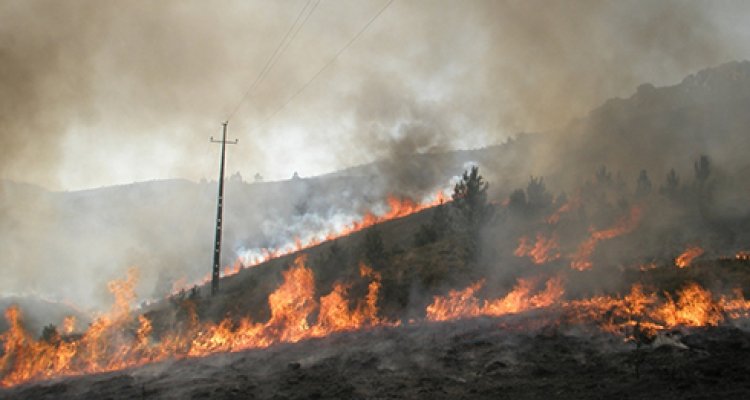
Project
The impact of COVID-19 on wildland fire management
COVID-19 has major implications for wildland fire management, because of severe social distancing and hygiene requirements. We are collecting procedures and guidance created around the world to help prepare wildland fire professionals globally for fire management during this pandemic. With this second global survey we aim to collect experiences and lessons learned about fire management during COVID-19. By filling out this survey, you can help us keep people safe from COVID-19 while also keeping them safe from unwanted wildland fires.
By using existing groups and networks to discuss this issue, obtain input and collate ideas, it will be possible to more quickly establish the principles and options for adapting to the constraints and opportunities that COVID-19 is imposing.
Goal
To clarify the implications of COVID-19 restrictions on wildland fire management and the people involved, and to collect lessons learned. We here define fire management as including the full disaster management cycle from risk reduction (prevention, mitigation) and readiness (preparedness, preparation), to response (suppression), recovery (restoration, rehabilitation) and review.
Rationale
If the agencies in countries work in isolation or internally on this issue they may take longer to get to the same set of ideas, overlook some ideas and/or prioritise less efficiently.
Target group
Wildland fire management professionals around the world in fire, land management and related agencies that fill policy, management, incident command or field roles and supporting specialists.
Output
Results from this survey will be used to formulate guidance for wildland fire professionals around the world in developed and developing countries, in the form of a short report to support practitioners and a short English language scientific publication aimed at scientists. All publications are open access and freely available for use.
Timeline
Please fill out this survey by 15 January 2022 (end of day).
We will release a short summary of survey findings by early February 2022.
About us
- Cathelijne Stoof
Environmental Sciences Group Wageningen University, The Netherlands, creator and leader of PyroLife Innovative Training Network - David Flores
Social scientist Rocky Mountain Research Station - Peter Moore
Forestry Officer Fire Management, Food and Agriculture Organisation of the UN - Amber van den Broek
MSc student risk communication Wageningen University - Emily Haire
Human dimensions research assistant Rocky Mountain Research Station, PhD student Colorado State University - Bethany Hannah
Founder of the American Wildfire Experience and former US hotshot wildland firefighter - Review: Jasper de Vries, Marijn Poortvliet
Social science, risk communication, Wageningen University, the Netherlands.
Funding
This study has received no funding.
Background information
When it became clear in March 2020 that COVID-19 would have major implications on wildland fire management, we launched an initiative to collate best practices from around the world to allow sharing of knowledge and to prevent countries, regions and agencies to reinvent the wheel. Two reports were published, one summarizing guidance collected (Moore et al, 2020), and one presenting the highlights of a global survey amongst fire managers (Stoof et al, 2020) who were asked about their plans for the upcoming fire season. The initial survey aimed to collect plans and expectations for the 2020 fire season. This current second survey is a follow up of our first and aims to collect experiences and lessons learned about fire management during the global COVID-19 pandemic. The COVID-19 mitigation measures affect operational and strategic elements of fire management that require changes in the mode of how people will work and the tactics and strategies that can no longer be used, must be modified or completely replaced. In other areas, the pandemic has also been found to create work-life balance challenges and affect mental health. This survey aims to create an overview of the operational and personal impacts of the pandemic on fire management and fire managers. The questions were designed based on initial scoping and consultation with a diverse group of international wildfire experts.